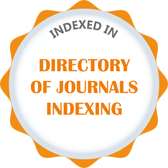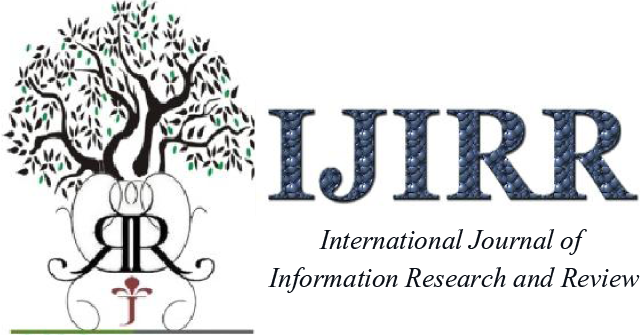Editorial
Volume 1 Issue 3 - 2017
Personalized Nutrition: Changing Mentality and Eating Habits
Institute of Medical Science and Genomic Medicine, EuroEspes Biomedical Research Center, Corunna, Spain; Chair of Genomic Medicine, Continental University Medical School, Huancayo, Peru
*Corresponding Author: Ramón Cacabelos, Institute of Medical Science and Genomic Medicine, EuroEspes Biomedical Research Center, Corunna, Spain; Chair of Genomic Medicine, Continental University Medical School, Huancayo, Peru.
Received: June 17, 2017; Published: June 19, 2017
Since the time of Hippocrates (460-370 BCE) and Galen (129-217 CE), it has become clear that food is a critical element for health and disease. The condition of health is the result of a stable equilibrium between inherited (biological) factors and the environmental milieu; and food is, without doubt, the most relevant xenobiotic factor in permanent contact with our genome-derived biological machinery. A human being of 80 years of age has consumed along his lifespan over 30 tons of food. Over 40% of the general population in most countries show some kind of food intolerance and about 10% suffer a clear food-related allergy. Furthermore, there are striking differences in food availability between developed and developing societies; whereas in wealthy economic societies obesity affects over 30% of the population, in those countries with low income and poor economies starvation and famine are frequent idiosyncratic pictures that stir the conscience of opulent societies. In addition, the abuse of pesticides, herbicides, antibiotics and a great variety of chemicals in agriculture, and the overwhelming air pollution in big cities have also contributed to contaminating the land and the sea with multiple toxicants which are ingested by humans in most foods. Food toxicology is also an issue when dealing with food preservation, manipulation and cooking.
Another perversity in our Western model of medical education is that nutrition has never been a priority topic in the medical curriculum in most medical schools. It was considered a minor discipline, restricted to a subprogram in the section of endocrinology and metabolism. Some encyclopedias on nutrition still incur in the dissemination of Paleolithic concepts on nutrition. To understand the positive and negative effects of nutrition, verbal tradition and laboratory analysis of food constituents is not enough, and it is likely that under given circumstances clinical trials with particular foods might yield results as relevant as many trials with certain drugs. In parallel with this lack of reliable information on the role of food ingredients in our metabolism, popular fantasies, speculation and mythology grew to form a cloud of folklore on the virtues and dangers of different foods. Fortunately enough, this panorama is gradually changing with the emergence of fresh knowledge on human and animal nutrition, and the genomic revolution has contributed to a large extent to this endeavor.
With the advent of new insights into the mapping (structural genomics) and function (functional genomics) of the human genome and satellite disciplines (epigenetics, transcriptomics, proteomics, lipidomics, toxicogenomics, metabolomics), as well as the characterization and assessment of the biological properties of many novel compounds of vegetal, animal and marine origin, a professional interest has emerged in the medical community and in the pharmaceutical and health food industries over the past two decades. At the present time, custom diets are becoming a fashion with little scientific foundation. However, following the primitive steps postulated by Vogel in 1958 for the creation of pharmacogenetics as a novel discipline in medical practice, many scientists in different fields are investigating the chemical and functional bidirectional dialogue between foods and the genome in order to lay the cornerstone of nutrigenetics (a term introduced by Brennan in 1975), as a novel discipline with a respectable niche in medicine oriented toward the prevention and treatment of diseases and/or the preservation of health.
Nutritional genomics, nutrigenetics and nutrigenomics, with very subtle and redundant differences, are almost synonymous terms which attempt to integrate knowledge on the binomial interplay between xenobiotic substances present in foods and the cascade of genomic events that are triggered when we eat a particular product, as well as the biological consequences (physiologic, pathologic, toxicologic) derived from the effects associated with the properties of a nutrient when it reaches a target, and its metabolism, degradation and elimination. This complex process requires the harmonic participation of thousands of genes and their products, from gene expression (transcriptomics) to protein synthesis (proteomics) and the integration of metabolic pathways (metabolomics) oriented toward achieving a physiological effect. Any disturbance in this cascade of sequential events may lead to pathological and/or toxicological effects. The categories of genes potentially involved in the nutrigenomic process can be classified into the following categories: (i) pathogenic genes associated with deleterious effects caused by nutrients; (ii) mechanistic genes involved in the physiological mechanism of action of macro- and micronutrients; (iii) metabolic genes responsible for the metabolism of xenobiotic agents (i.e., over 300 polymorphic variants of CYP family genes responsible for phase-I reactions; and variants of genes encoding amino acid transferases, dehydrogenases, esterases, glucuronosyl transferases, glutathione transferases, methyl transferases, N-acetyl transferases, thioltransferase, and sulfotransferases associated with phase-II reactions); (iv) transporter genes encoding transporter proteins [ATP-binding cassette transporters (ABC family genes), ATPases, and solute carriers (SLC family genes), such as those responsible for the transport of folate (SLC19A1), urea (SLC14A1-2), monoamines (SLC29A4, SLC22A3), amino acids (SLC1A5, SLC3A1, SLC7A3, SLC7A9, SLC38A1, SLC38A4, SLC38A5, SLC38A7, SLC43A2, SLC45A1), nucleotides (SLC29A2-3), fatty acids (SLC27A1-6), neurotransmitters [SLC6A2 (noradrenaline transporter), SLC6A3 (dopamine transporter), SLC6A4 (serotonin transporter, SERT)], glutamate (SLC1A6-7), and other endogenous and exogenous agents; and (v) multiple pleiotropic genes involved in metabolic networks. The expression of all these genes is under the regulatory control of the epigenetic machinery (DNA methylation, chromatin/histone modifications, miRNA regulation).
The technical management of data derived from all these players requires the use of powerful bioinformatics tools for the accurate interpretation of results and for the practical application of nutrigenomic procedures in medicine.
Personalized nutrition based on nutrigenomic principles is a necessity in view of the following: (i) correct nutrition in pregnant mothers is essential for normal embryogenesis and fetal maturation of the offspring; (ii) different nutrients can induce reversible epigenetic changes during development, with consequences for health in adulthood; (iii) deficient postnatal nutrition can cause disease in other life periods; (iv) many foods and their ingredients may alter the efficacy and safety of some drugs; (v) many drugs can modify the properties of some nutrients; (vi) aberrant food consumption can contribute to disease with chronic effects (e.g. cardiovascular disorders, stroke, metabolic syndrome, cancer, obesity, diabetes, etc.); (viii) appropriate nutrition may help in preventing various health/disease conditions (e.g. 10-15% of the Western population over 60 years of age are anemic; 6-12% show folate and vitamin B12 deficiencies; 40-50% are hypertensive; > 50% are hypercholesterolemic and/or dyslipidemic; > 30% exhibit transaminase dysfunction; and some Latin American communities show a high prevalence (> 30%) of diabetes); (ix) optimal nutrition can also help our cell detoxification system to efficiently eliminate and/or biotransform toxicants and procarcinogenic compounds; and (x) random nutrition is likely to be at the root of over 60% of gastrointestinal disorders and food intolerances.
Although food is much older than Homo sapiens, and probably responsible for the evolution and differentiation of living species, we are still at the beginning of an exciting adventure which requires (i) a revolutionary change in our mentality regarding the utility and the health benefits of personalized nutrition, and (ii) a drastic modification of many of our aberrant dietary habits that lead to disease and its disabling consequences. Likewise, much attention should be paid to nutritional toxicogenomics and its deleterious effects on human health.
Citation:
Ramón Cacabelos. “Personalized Nutrition: Changing Mentality and Eating Habits”. Nutrition and Food Toxicology 1.3 (2017):
96-97.
Copyright: © 2017 Ramón Cacabelos. This is an open-access article distributed under the terms of the Creative Commons Attribution License, which permits unrestricted use, distribution, and reproduction in any medium, provided the original author and source are credited.



































 Scientia Ricerca is licensed and content of this site is available under a Creative Commons Attribution 4.0 International License.
Scientia Ricerca is licensed and content of this site is available under a Creative Commons Attribution 4.0 International License.